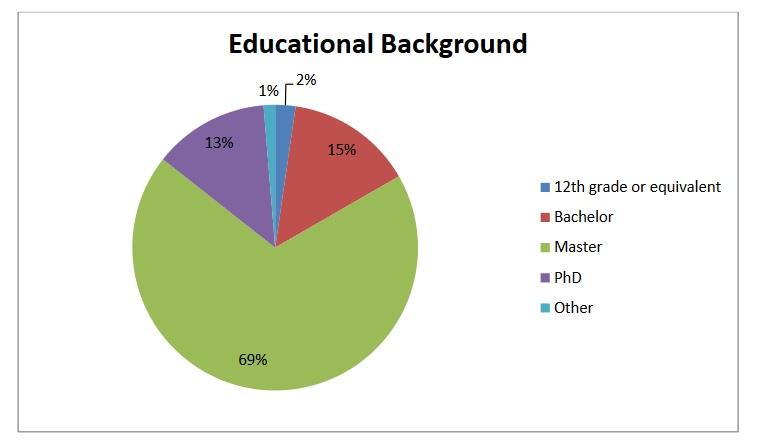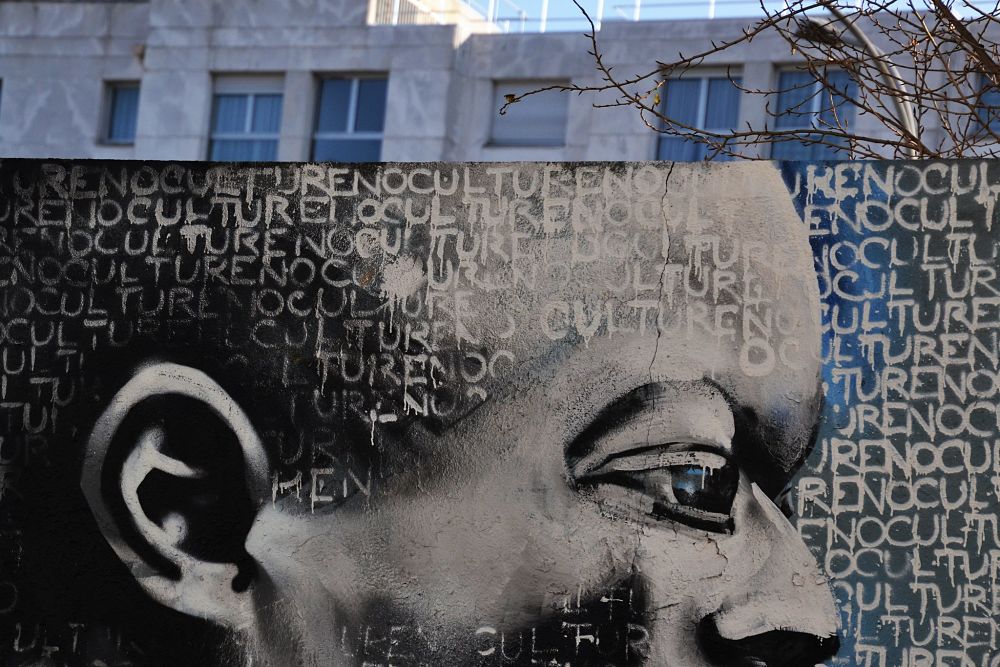How to Become an Intercultural Trainer
As an international cross-cultural training company, one of the most frequently asked questions we receive is how individuals can become intercultural trainers.
Unlike with many other professions, there is no simple answer.
Trainers working within the cross-cultural field come from many different backgrounds and can do very different things.
Not all are trainers per se, and not all are involved in the same fields of work.
Once you understand the type of training you want to do, or maybe the sector you want to work in, that will help guide you in terms of steps to take.
So here's some information on how you can become a professional intercultural trainer.
'CROSS-CULTURAL' OR 'INTERCULTURAL'?
Strictly speaking, there is a difference between cross-cultural and intercultural.
Many tend to agree that cross-cultural refers to two cultures coming together, i.e. Germans and Arabs negotiating within a business meeting would be termed 'cross-cultural'. Intercultural refers to many or multiple cultures all interacting, i.e. a meeting involving many cultures.
We use them interchangeably in this article as both are valid when it comes to being a trainer in the field.
WHAT IS CROSS-CULTURAL TRAINING?
Cross-cultural training can be applied within many different settings, including but not limited to, business, politics, finance, education and more.
Whilst one trainer may find themselves mentoring kids on prejudice, bias and racism, another might be training military personnel prior to deployment to a foreign land and yet another may be helping the CEO of a company negotiate a deal in China.
The common thread that unites cross-cultural trainers, however, is that they are all helping people understand another culture.
Understanding other cultures’ drivers, beliefs, motivations, quirks, humour, etiquette, mindset and worldview is essentially about giving people the tools and knowledge they need to operate in or with another culture(s).
As you can imagine, this could apply to many people from many walks of life.
To summarise, cross-cultural training is focused on using cultural insights to help people understand others with the intention of creating positive outcomes.
You can read more about the ins and outs of cross-cultural training here.

What do you think should be included in an intercultural training course?
Click here to learn what should be covered
Photo by Mariah Solomon on Unsplash
WHAT TYPES OF CROSS-CULTURAL TRAINING ARE THERE?
Training can come in many forms and ways.
1. Firstly, there are different ways of DELIVERING training.
1/ traditional, classroom-based training courses whereby a trainer/facilitator is physically teaching people.
2/ online training which has become more and more relevant within education and learning with a large amount of training now taking place digitally.
3/ blended learning which may use elements of any sort of training delivery, whether that be mobile, face-to-face, Skype or a face to face training environment.
2. Secondly, there are also a vast number of SUBJECTS that can be covered.
Courses tend to be split up between country-specific and skill-specific.
1/ Country specific courses focus usually on 1 (sometimes 2 or 3) country.
They give learners an overview of that country, detailed insights into the culture, guidelines for communication and other practical tips. They can also be specific in that sometimes a course is needed on South Korea, for example, with a heavy focus on negotiation.
Examples of courses that are typical of the industry include:
- Relocation training – helping expats settle into new countries
- Doing business in [country name] – focusing on practical business issues such as etiquette, protocol, dos, don’ts
- Working with [country name] – addressing challenges, issues and the potential of working with specific countries/cultures
2/ Skill specific courses are less about a country or culture and more about personal skills that allow people to work cross-culturally.
These can cover everything from communication to presentation skills to management to leadership. Sometimes they overlap with country-specific courses but these tend to focus more on developing a mindset that allows learners to work with any country or culture.
Examples of typical courses offered by cross-cultural training companies include:
- Team-Building – helping multicultural teams overcome communication and collaboration challenges
- Sales – helping multicultural teams to sell into a new country and win deals
- Customer Service – helping individuals understand how to deliver excellent customer service to an international audience
The type of training delivered very much depends on who is requesting the training and why.
Consider the difference in style, content and presentation that would be needed if the audience were refugees, business leaders, politicians, call-centre staff or prison guards.
WHAT DOES AN INTERCULTURAL TRAINER DO?
The answer may seem obvious but actually, the work of an intercultural trainer extends far beyond turning up and delivering a course.
As well as developing courses and materials, trainers need to spend time marketing, taking care of financials, talking to prospective clients, carrying out evaluations and assessments, researching, attending conferences, taking courses and carrying out administrative tasks.
Reports interestingly show that most intercultural trainers typically carry out work outside of the field, which indicates either that training work on its own is not enough to sustain a full-time income, or that the cross-cultural training is a side-business.
A lot of training work involves raising people's cultural awareness.
Click here to read some good examples of cultural awareness including how soccer coach Guus Hiddink was awarded South Korean nationality due to his!
WHAT TYPES OF INTERCULTURAL TRAINERS ARE THERE?
By 'type of trainer', here we mean the subject matter - not your style or teaching techniques.
Trainers use many other terms to describe themselves such as coach, facilitator, training manager or simply interculturalist.
Intercultural or Cross-Cultural Trainers tend to specialise in one, or several countries; alongside this, some may also be specialists in other areas such as management or negotiation.
Areas in which trainers tend to be in most demand include:
• Developing Cultural Awareness
• Multicultural Team-Building
• Expatriate Relocation
• Diversity & Inclusion
• Management
• Conflict Resolution
• Mergers & Acquisitions
Within the cross-cultural training industry there are some loose agreements over the types or roles of trainers. This usually ties in with their place of work and experience.
Trainer – the vast majority of professionals within the field will see themselves as trainers. They help build courses and programmes, engage with learners, deliver courses and everything in-between.
Consultant – consultants are senior-level trainers who have specific experience or knowledge that is needed by a client. Rather than train people, a consultant gives practical business guidance.
Relocation trainer – these are trainers who focus only the cultural and practical elements of living in a foreign country. They are qualified to teach about the culture but not experienced enough to train on business issues for example.
Resource specialist – more a junior role, they assist a trainer or relocation trainer with research, admin and occasionally deliver small training exercises within a course.
Internal Trainer/Consultant – many large global companies now have positions for people specifically interested in culture and working globally. Responsibilities may include course design, supplier management and training delivery.
The 2014 Status Report of the Intercultural Profession found that most trainers worked for their own training companies or within an academic institution.
WHAT ARE THE JOB OPPORTUNITIES FOR INTERCULTURAL TRAINERS?
Although the demand for cross-cultural trainers spans education, business and politics, the vast share of demand comes from within the private sector.
As found in the 2014 Status Report, 57.5% worked in/for the private sector, 31.5% in non-profit, 20.8% in public government and 41.4% in the academic sector.
With the private sector being at the forefront of globalization, it is natural that it will have the highest demand. One would imagine that this will continue moving into the future.
Despite this, the statistics demonstrate that it is possible to apply cross-cultural training almost anywhere, which means if you have a specific niche you want to concentrate on then it's possible to find opportunities too.
The field has also started to overlap with complementary sectors which have led to a small increase in job opportunities within corporate relocation, translation, concierge, marketing and travel.
A recent view of jobs advertised online includes job titles such as:
• Manager of Global Talent Development
• Intercultural Learning Specialist
• Academic Director of Intercultural Learning
• International Program Coordinator
• Diversity & Inclusion Training & Development Coordinator
WHAT SKILLS DO YOU NEED TO BE A CROSS-CULTURAL TRAINER?
1. Cultural knowledge
You don’t necessarily have to come from a mixed cultural background but what you must have is in-depth knowledge of another culture. As well as understanding a foreign culture, you need to be fully aware of your own.
This is usually acquired working in a country or visiting for professional or business purposes. If you plan to be a cross-cultural trainer for the private sector, business experience in your country of choice is crucial.
“My strong advice to potential trainers is to go out and get practical experience working and living in other cultures. This is much more valuable than simply being able to discuss theories, academic studies, and generalisations. In today's globalised world, the nuances on the ground depend on a wide range of factors, from line of business to diversity in an organisation or country. These complexities are rarely covered well other than by those who have experience on the ground.” Donna Marsh, professional intercultural trainer.
2. Academic knowledge
Although for certain levels of trainer, such as a relocation trainer, an academic background is not necessary, in order to progress within the field, it is considered essential to study intercultural communication.
An understanding of the mechanics of culture at a theoretical level helps deliver better courses. The 2014 Status Report found that nearly 70% of intercultural trainers had completed an MA.
3. Business knowledge
If you are going to be teaching people in call centres, you need call centre experience; if you are going to be teaching managers to manage multicultural teams, you need to have done it yourself.
Knowledge of how businesses operate, the issues they face and the people involved all help when designing and delivering courses. Work experience is probably one of the most important things that a newcomer to cultural training needs in order to be taken seriously.
4. Experience of living abroad
Most people move into cultural training following a stint abroad, either working, volunteering or even travelling. Spending time and working in another country opens your eyes to the ways in which people differ when at work, as well as outside of it. It makes you question your own culture and values and the first-hand experience of culture shock and homesickness are invaluable.
When asked what advice interculturalists would give to newcomers to the industry, the majority cited living abroad as the most valuable skill or experience [results from 2014 Status Report].
5. Training and Teaching Ability
Even if you have the most in-depth knowledge of a culture or country, have the best slides with the best agenda, you will fail if you can’t teach people. Being a trainer is about opening doors for people to help them engage with, understand, process and respond to new ways of thinking, being and doing.
Cultural training is no different. It is no coincidence that many TEFL teachers go on to become excellent trainers.
What makes a great trainer?
“Social skills to make a connection at the beginning of the day. Presentation skills to keep up engagement and interest. Room skills to handle the technology and exercises. And time keeping - no one likes it when the trainer is drifting on or making them late for lunch.” Matthew Hill, professional trainer
6. Writing Skills
Strong written skills are essential as trainers must prepare proposals, questionnaires, handouts, reports, slides and the like. Having the ability to word things clearly and succinctly in a structured, purposeful manner is very important.
If you want to become an intercultural trainer, you need to understand 'culture'.
Click here to learn why cultures exist
Photo by Jean Menjoulet on Flickr (CC BY 2.0)
WHAT ARE THE STEPS TO BECOMING AN INTERCULTURAL TRAINER?
The road to becoming a cross-cultural trainer can vary dramatically from person to person. Some come from the business world and go back to university to study and then become trainers. Others know from school-age what they want and complete degrees, gain work experience, travel and work their way up the training ladder. Others can fall into it by accident, simply due to having insider knowledge of a particularly niche culture at the right time.
However, here are some practical steps one can take to get themselves started:
Read Books – there are 100s of books on the topic of cross-cultural and intercultural communication. Find a reading list, research some of the big names in academia and read about their theories, delve deeper into your culture/country of interest and see what has been written thus far.
Join SIETAR – find your local Society for Intercultural Education, Training and Research and join up. Find out if they have any events coming up and attend them. This is a great way of fast-tracking yourself into the industry as you will meet not only trainers but training companies, academics and many others interested in the field.
Go travel or work abroad – if you are yet to spend time abroad, then it's critical you do so. If you have a specific country that you want to train in, go and spend time there to learn more about it, see more cities, meet more people, scratch the surface and if possible find a job.
Take a Course – if you feel you are ready to become a trainer there are now train-the-trainer courses specifically aimed at those wanting to get into crosscultural training. The qualification will help in establishing you as a credible trainer.
Get Experience – get whatever experience you can and wherever you can get it. If that means working for a relocation company, or shadowing a cultural trainer or becoming an admin assistant for a training company then do it.
WHAT CAN I EARN AS AN INTERCULTURAL TRAINER?
The earning potential of a cross-cultural trainer essentially comes down to the type of trainer they are, where and who they work for, and at what level.
Full-time trainers working within an organisation, will be salaried. This can be anything from $20,000 p.a. for a junior upwards of $100,000 if a senior within an organisation.
Many trainers operate as small businesses or as freelancers. They may see hourly fees between $100-$500 per hour, or daily rates ranging between $500-$2,000 depending on level, experience and seniority.
WHAT ARE THE POSITIVES AND NEGATIVES OF BEING AN INTERCULTURAL TRAINER?
On the plus side:
• You are your own boss [if you freelance]
• You do something you care about
• You cover a variety of projects
On the negative side:
• Your work is never constant
• You can spend years breaking into the industry
• You can find it lonely
If you have any further questions about becoming an intercultural trainer, please feel free to contact the team.
FURTHER READING AND LINKS
We encourage you to research as much as possible. To get you started here are some links you may find useful.
Being a Cross-Cultural Trainer
Associations
- NAFSA: Association of International Educators
- SIETAR USA
- SIETAR EU
- The International Association for Intercultural Communication Studies
- International Communication Association
Train-the-Trainer Courses
University Courses
- University of East Anglia (UK) (Undergraduate)
- American University (USA) (Masters)
- De Paul University (USA) (Undergraduate)
Useful Stuff
- Journal of Intercultural Communication
- List of popular books about cross cultural communication
- Beginner’s Guide to Communicating Across Cultures
- Country Profiles
FOUND THIS USEFUL? THEN PLEASE SHARE IT WITH OTHERS!
Photo by Christina @ wocintechchat.com on Unsplash
Related Posts
By accepting you will be accessing a service provided by a third-party external to https://www.commisceo-global.com./

 +44 0330 027 0207 or +1 (818) 532-6908
+44 0330 027 0207 or +1 (818) 532-6908





